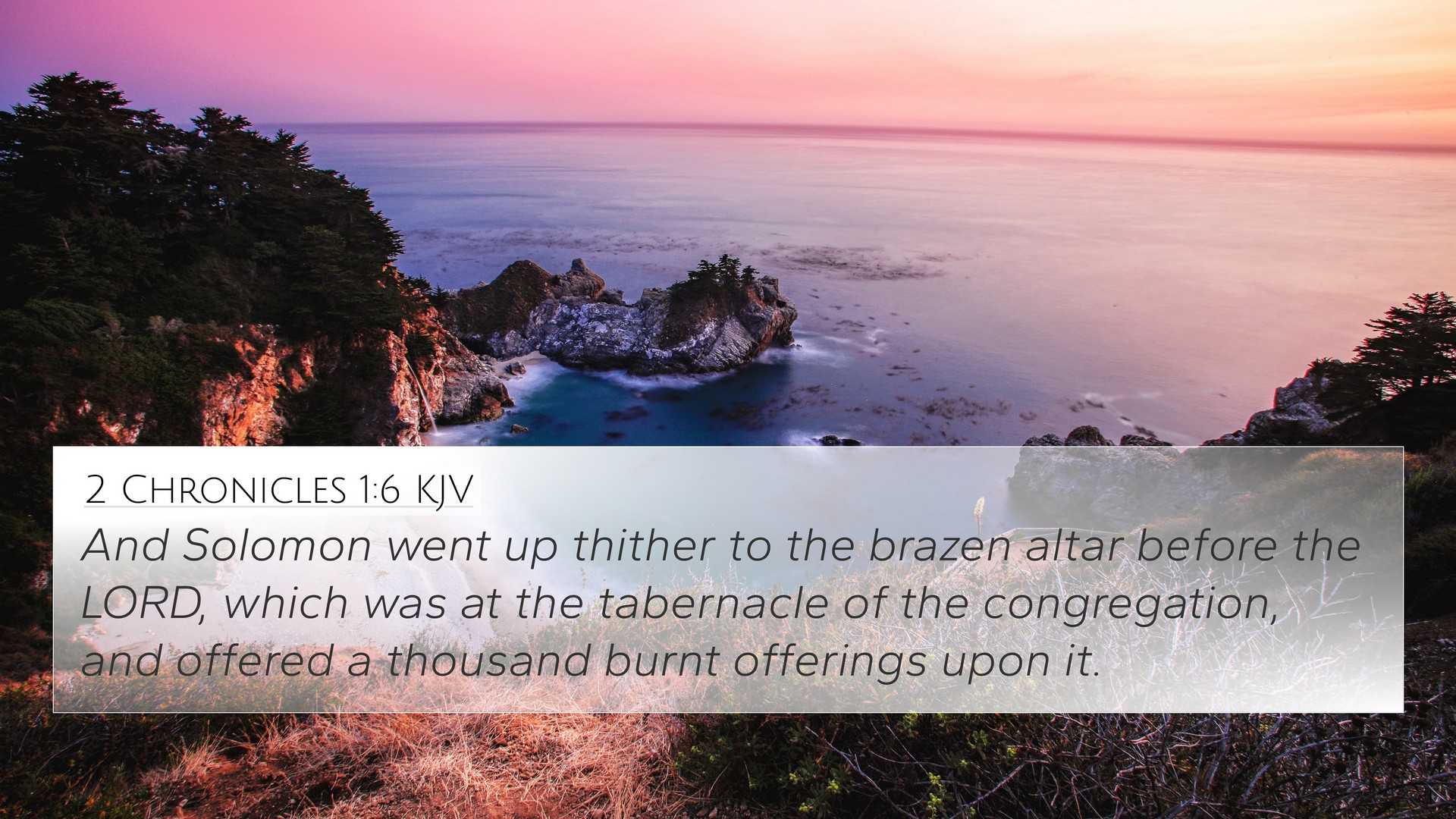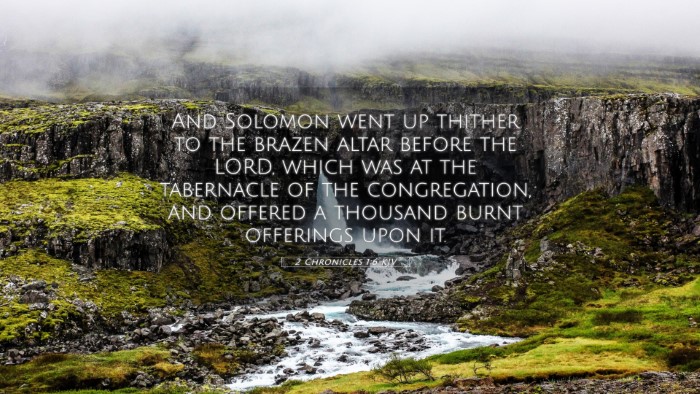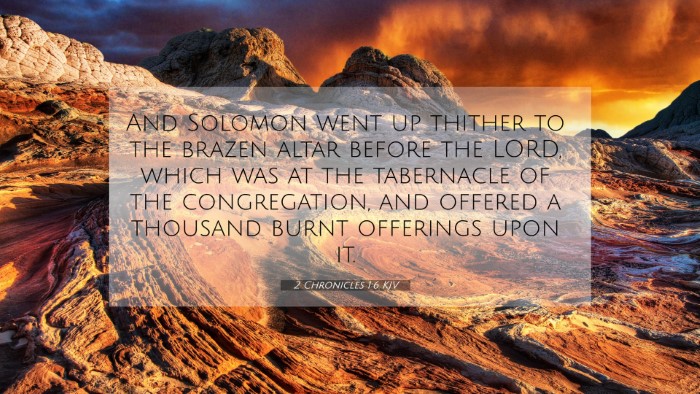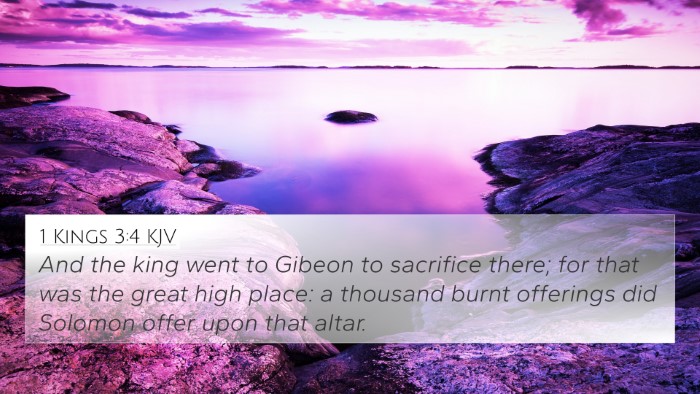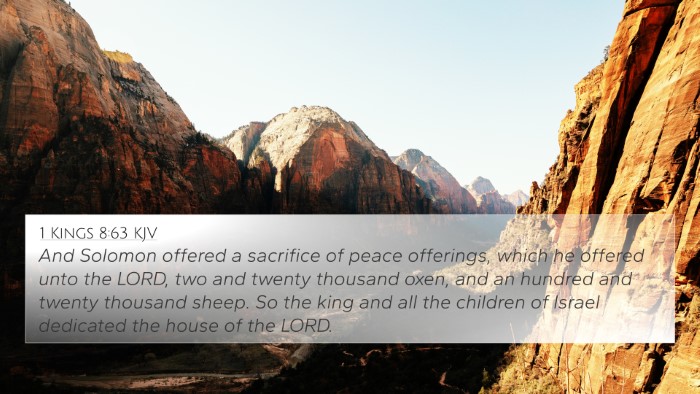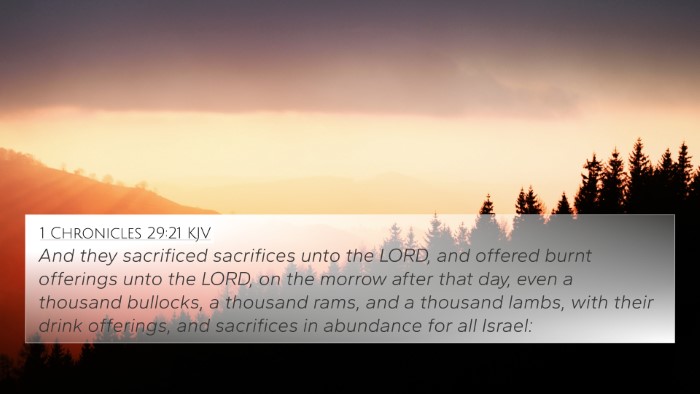Understanding 2 Chronicles 1:6
The verse 2 Chronicles 1:6 states:
“And Solomon went up thither to the brasen altar before the Lord, which was at the tabernacle of the congregation, and offered a thousand burnt offerings upon it.”
This verse captures a significant moment in King Solomon's reign and his relationship with God. Below is a summarized interpretation of its meaning combined from public domain commentaries.
Verse Context and Significance
Matthew Henry explains that this passage illustrates the humility and devotion of Solomon as he seeks to honor God at the beginning of his kingship. The act of offering a thousand burnt offerings signifies not only wealth but also a deep commitment to worship and seeking divine favor. Solomon's actions set a tone for his reigning period.
Albert Barnes notes that the choice of the brasen altar, located at the tabernacle, reflects Solomon's acknowledgment of the established worship practices and his respect for the commands laid down by God. This might indicate a sense of continuity from his father David's reign and an understanding of Israel's spiritual heritage.
Adam Clarke adds that the act of offering such numerous sacrifices may also be understood as a prayer for wisdom and guidance. Solomon, aware of the immense responsibilities of ruling a nation, demonstrates his need for divine assistance through this extravagant worship.
Thematic Connections
- Devotion and Worship: Solomon’s act symbolizes the importance of heartfelt devotion towards God.
- Leadership and Responsibility: The sacrifices represent the burdens of leadership and the necessity of spiritual grounding.
- Continuity of Worship: Emphasizes the ongoing legacy of worship established by previous kings, especially David.
Cross-References and Related Bible Verses
The following verses echo similar themes or provide insights related to 2 Chronicles 1:6:
- 1 Kings 3:4 - Solomon also offered sacrifices at Gibeon, illustrating his commitment.
- 1 Chronicles 21:26 - David's offerings foreshadow Solomon's actions, showing continuity in worship practices.
- 2 Samuel 24:25 - Offers a narrative of how offerings can invoke divine favor.
- Psalm 51:17 - Highlights the importance of a contrite heart over mere sacrifices.
- Ecclesiastes 5:1-2 - Urges discernment when approaching God in worship.
- Leviticus 1:3-9 - Outlines the purpose and importance of burnt offerings in the law.
- 1 Timothy 2:1 - The act of prayer and offering supplications aligns with Solomon's approach.
- Philippians 4:6 - Exhorts believers to present their requests to God, akin to Solomon’s approach.
- Hebrews 11:4 - Illustrates how faith and offerings are recognized by God.
- Romans 12:1 - Encourages the offering of our lives as living sacrifices, reminiscent of Solomon's sincerity.
Conclusions
The verse 2 Chronicles 1:6 serves as an excellent starting point for understanding the intertwining relationship between faith, leadership, and divine worship in the biblical narrative. Solomon’s actions symbolize a heart inclined towards God, seeking wisdom and guidance, which is essential for any leader.
These reflections serve not only to deepen our understanding of this specific passage but also to encourage believers today to seek God earnestly, remembering that genuine worship goes beyond mere offerings but embodies a lifestyle of dedication and humility before the Creator.
For those interested in cross-referencing Biblical texts, this verse is a cornerstone for many connections between leaders' devotion and God's response, thus enriching one's study of the Scriptures through thematic Bible verse connections.
